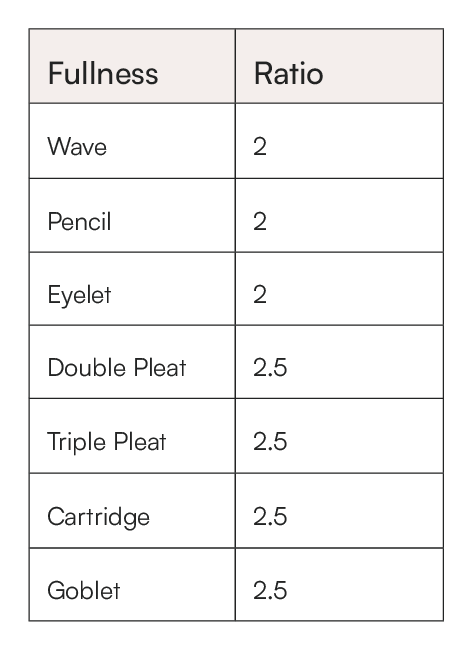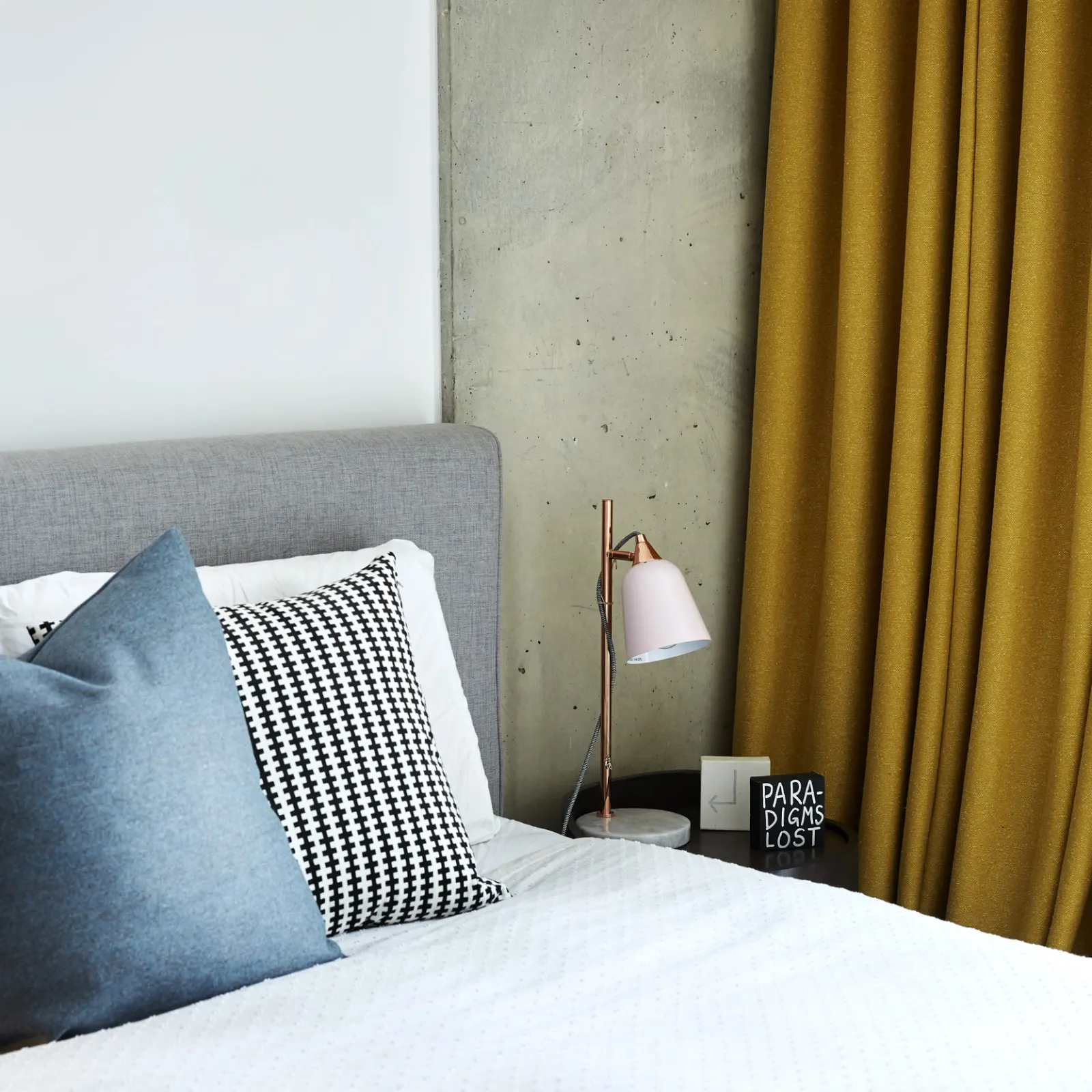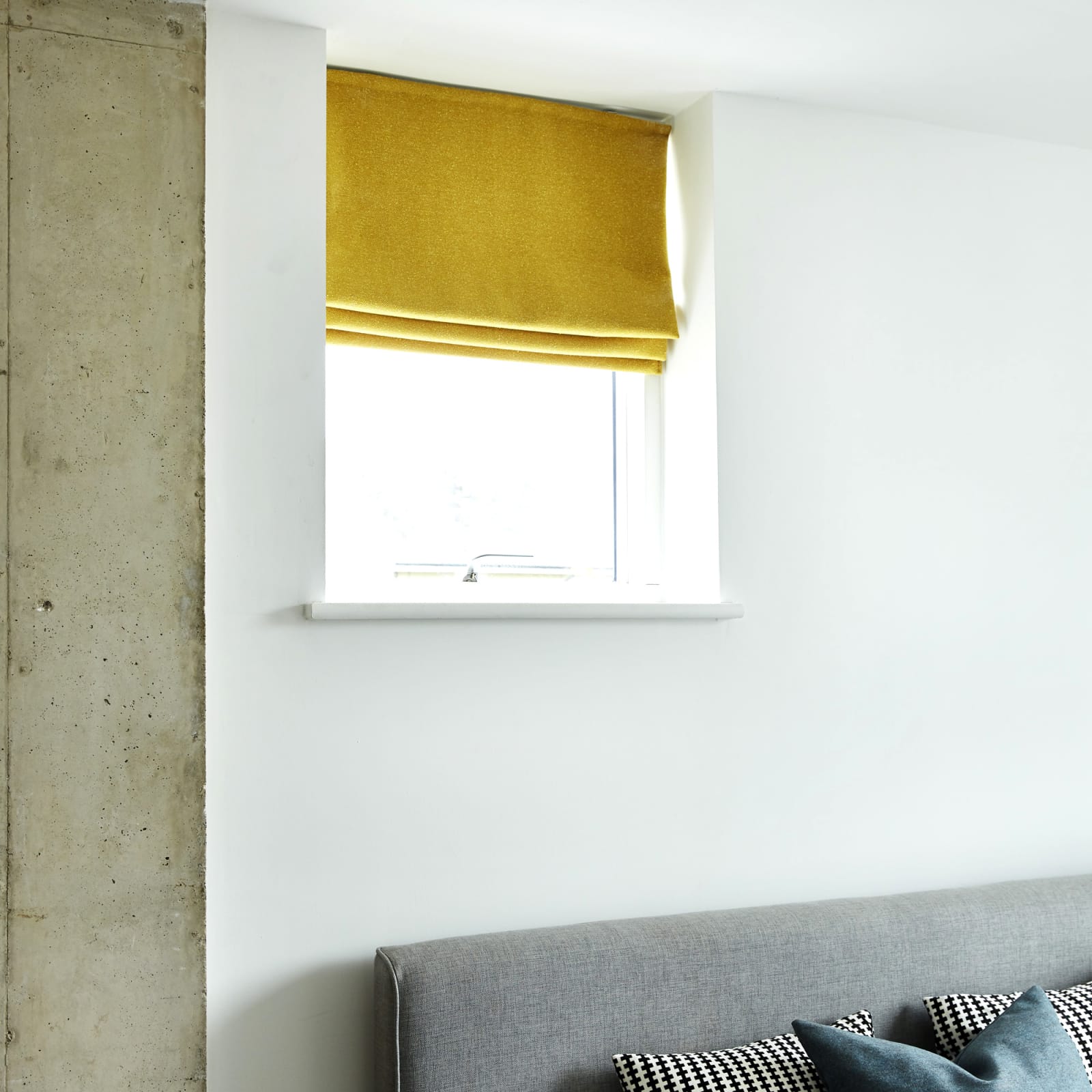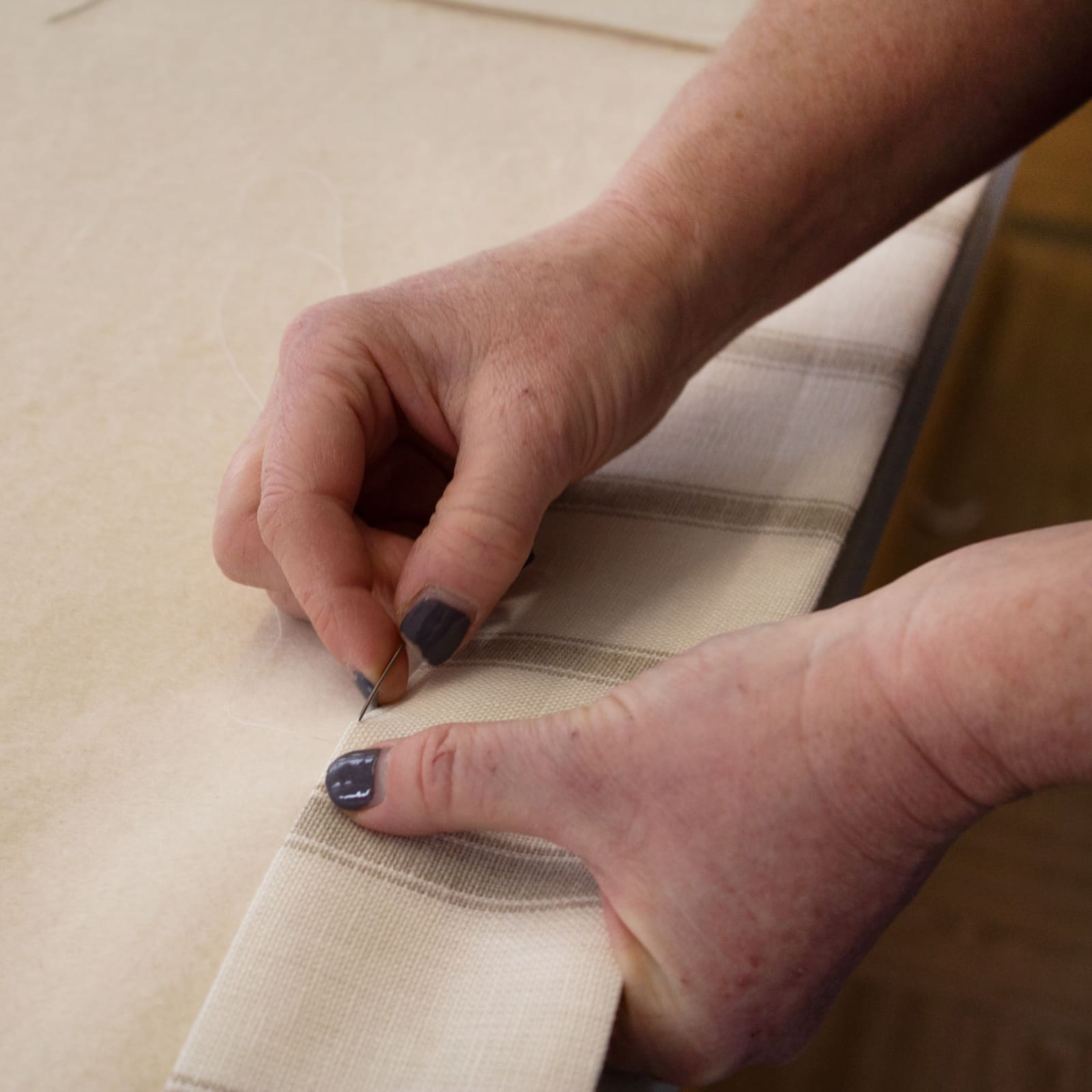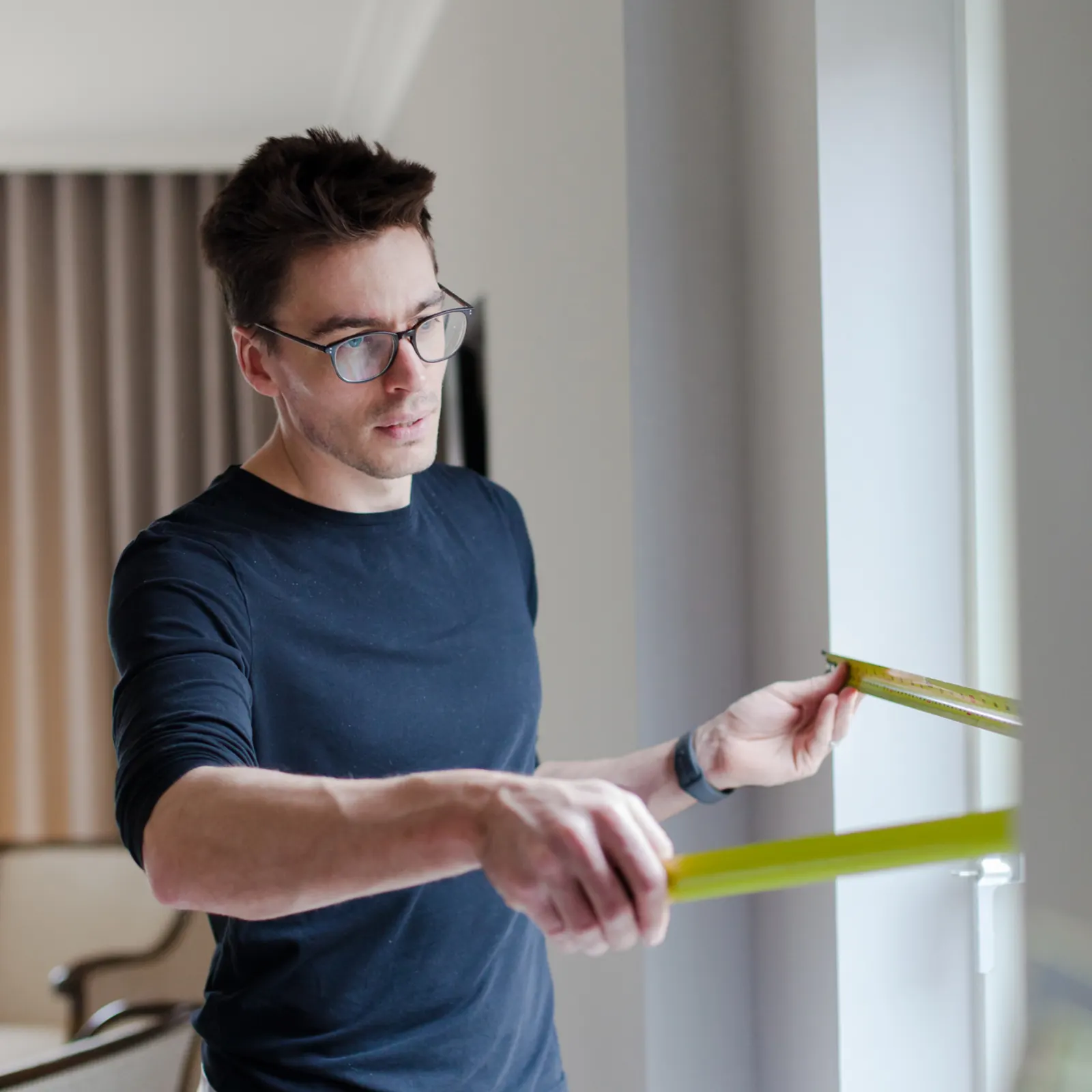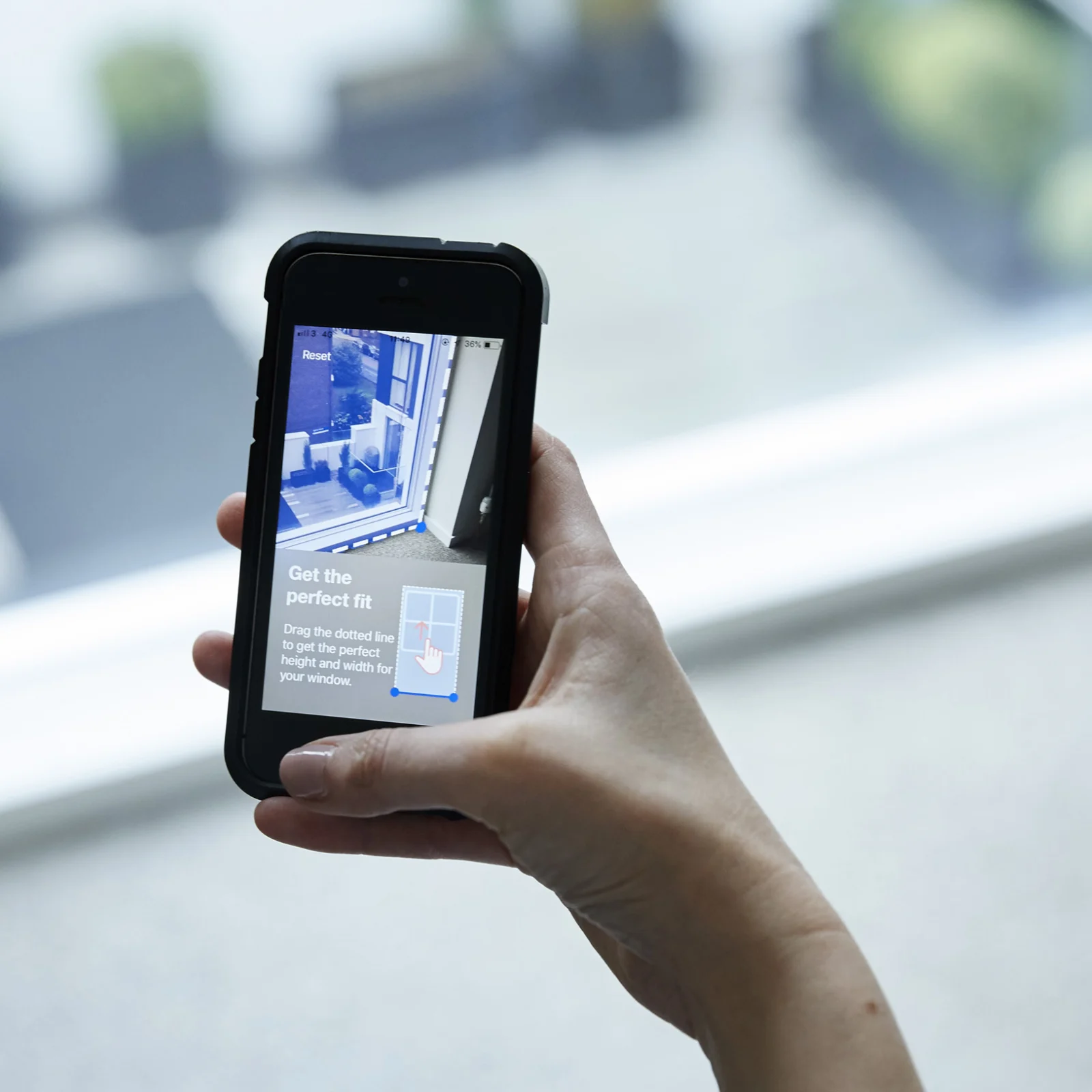Book our home measuring service in London

The Stitched Curtain Heading Style Guide
So, you’ve decided that you need some made to measure curtains for your home but are wondering what heading to choose. It’s an important decision as the heading type will determine the style of the curtains and, along with your chosen fabric, make the most impact. Curtain headings control the fullness of the curtains and can provide a traditional, formal look or something more relaxed and contemporary.
Before deciding on a curtain heading it’s important to assess the amount of stack back in the room, that is the space either side of the windows that the curtains take up when they’re fully open. Some headings stack into a much smaller space which is particularly useful if you have a small window or a room with poor natural light. The fabric and lining you choose will also have a bearing on the space the curtains take up when open with heavier fabrics such as velvets and interlined curtains taking up more room than lighter fabrics and unlined curtains.
At Stitched, we have curtain headings to suit all settings. Here’s our brief guide to the options available:
Pencil Pleat
Pencil pleats are created with a tape to provide a crisp, elegant look and are suitable for curtains hung from tracks or poles. The fullness provided by the pleats adds a touch of luxury to a room and the heading looks particularly good with fabrics such as silk that catch the light. A pencil pleat is a very versatile choice that will suit pretty much any setting.


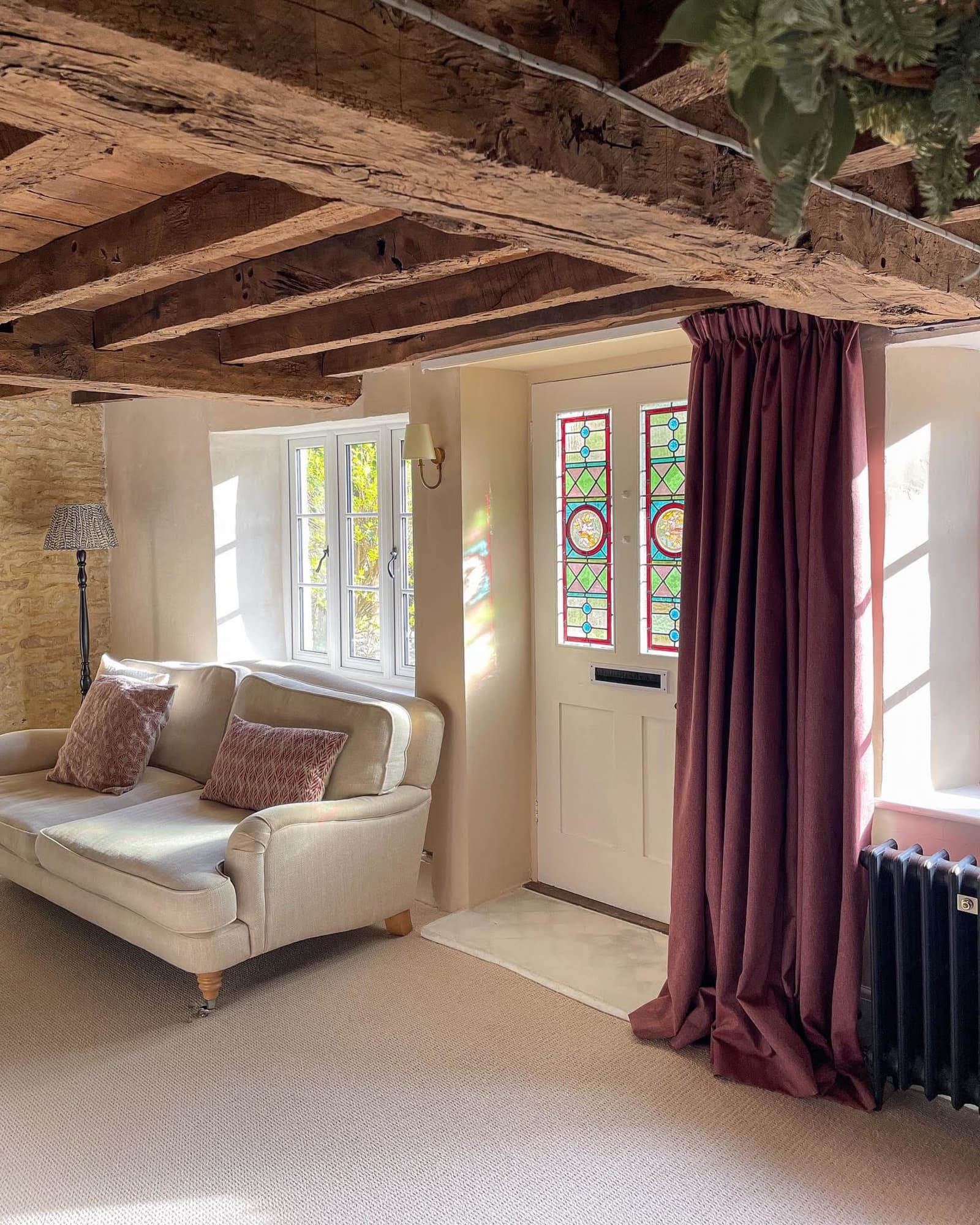
Double and triple pleat
This is where the fabric is gathered into sets of two or three pleats and curtains with these headings look classic and tailored. The amount of fabric required to create the pleats means that the curtains are full when drawn but the pleating means they bunch up well when opened, taking up less space than you might imagine. A double or triple (also known as ‘French’) pleat will suit practically every fabric with heavier weights or interlined curtains providing an especially sumptuous look.
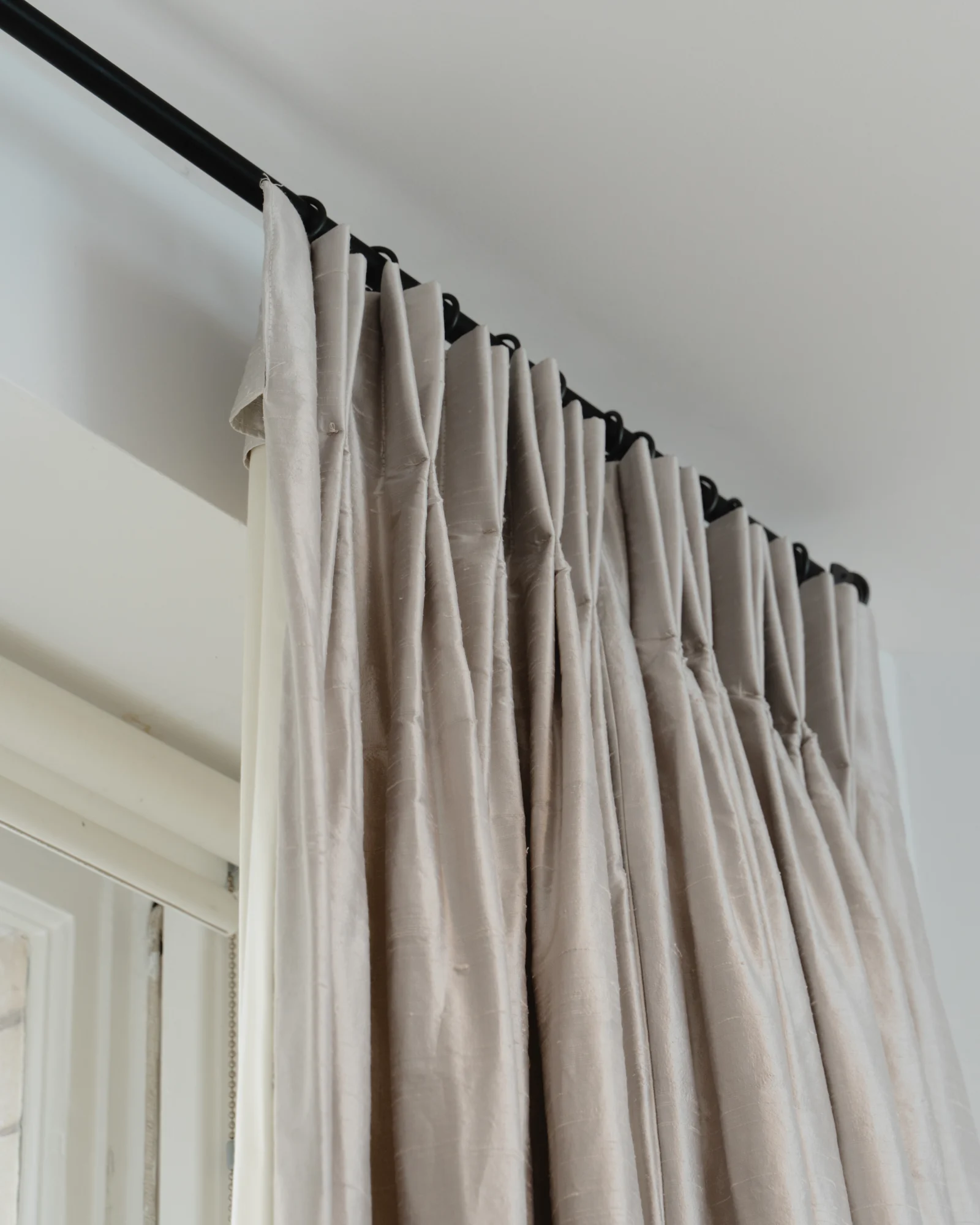


Wave
A wave heading is another cool, contemporary option, perfect if you want to create a simple, modern and elegant look. Wave curtains have no gathering across the top, just a continuous, sinuous curve. The curtains stack back neatly and the heading suits fabrics that drape well such as sheers, cottons and silks. Both eyelet and wave headings are a great way of maximising natural light in a space.
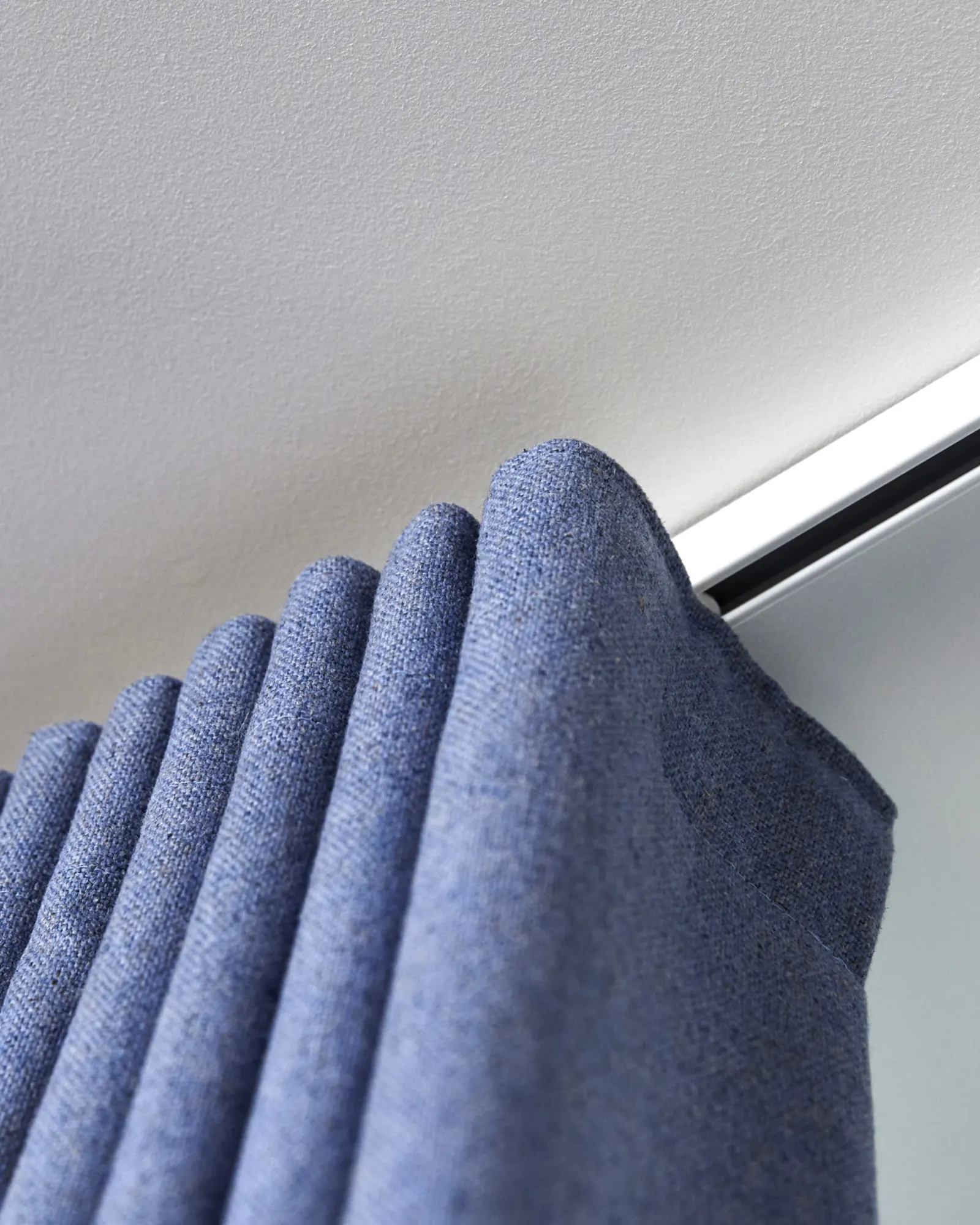


Cartridge
A cartridge heading creates beautiful, even folds in a fabric and a contemporary feel. Cartridge curtains provide a clean luxurious look. The cartridge is a simple heading that enables the curtains to stack neatly when open.
Eyelet
Where space either side of a window is very limited an eyelet or wave heading is the best option. An eyelet heading creates a very contemporary look where the curtain pole is threaded through metal eyelets in the top of the curtains. You can choose a chrome, gunmetal or bronze finish for the eyelets which is a great way of visually linking your curtains not only to the curtain pole but to other metal finishes in the room. Curtains with eyelet headings are very easy to operate so a particularly good choice for children’s bedrooms as well as elsewhere.
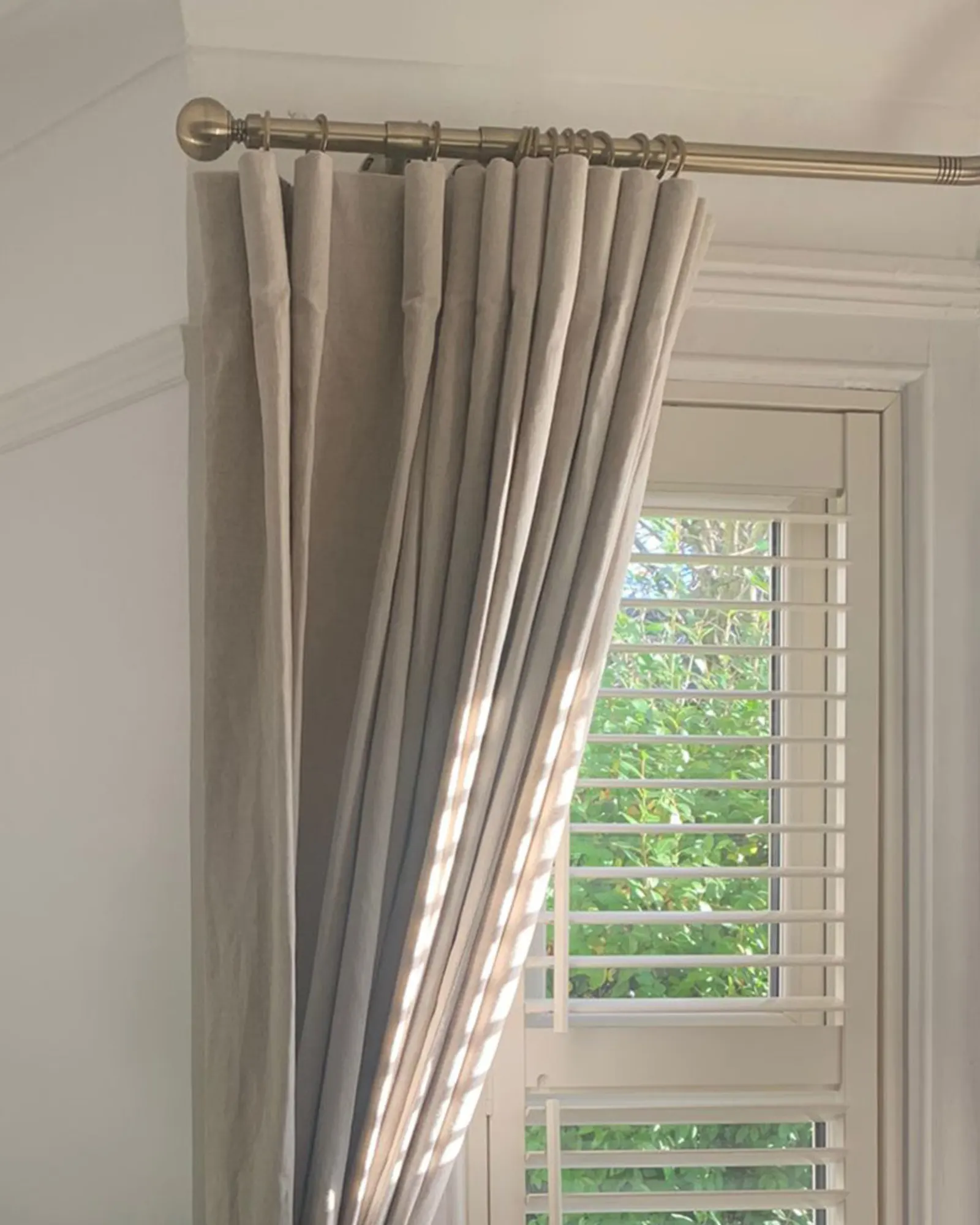
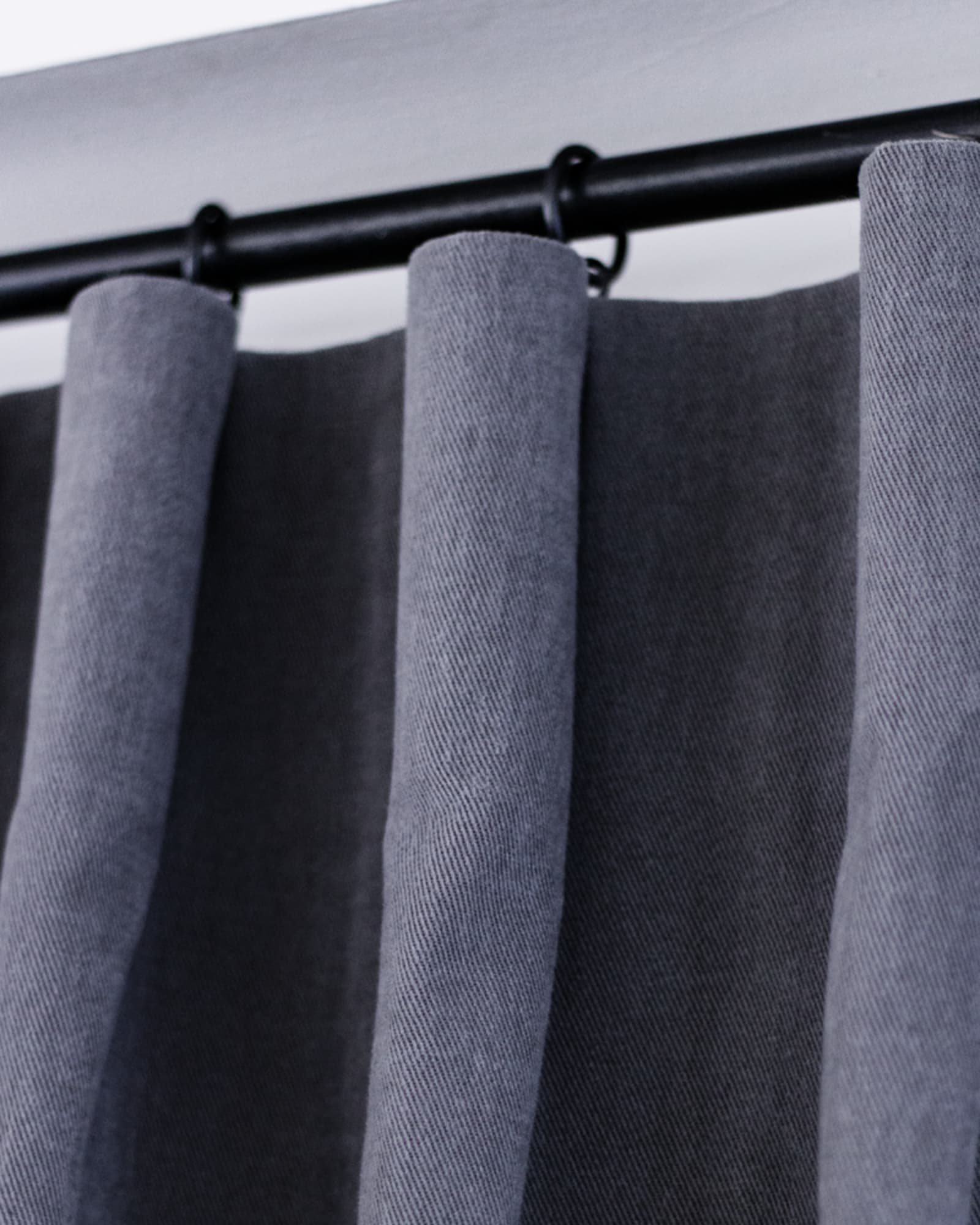

Goblet
If you’re looking for drama, go for curtains with a goblet heading. A goblet heading is made in a similar way to a double or triple pleat but instead of making the single tuck into a double or triple one, only the base is secured forming a short ‘goblet’ which is stuffed to pad out the full shape. The resulting curtains can be hung from tracks or poles.
Curtain Fullness
Curtain fullness is a ratio. For example if your width measurement is 100cm and you choose a pencil pleat heading, we will use 200cm of fabric. This helps your curtains to look full when closed and stack back neatly when open.
